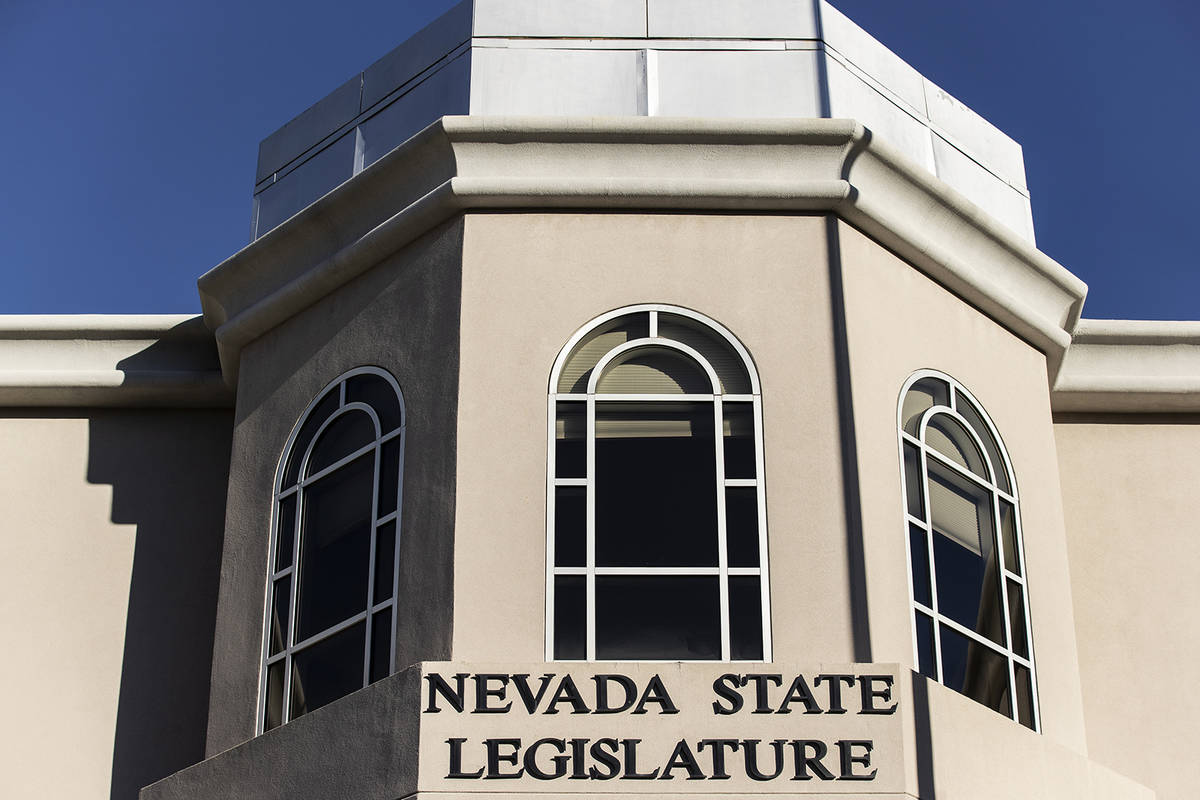
Democratic leaders in the Nevada Assembly unveiled legislation Wednesday that would make universal mail-in-voting permanent in Nevada.
Mail-in ballots were utilized during the 2020 elections as part of reforms enacted to address voting during the COVID-19 pandemic. Assembly Bill 321, introduced Wednesday, would effectively solidify those reforms, with some changes, into state law moving forward.
Mail-in voting amid the pandemic “worked incredibly well,” said Assembly Majority Leader Teresa Benitez-Thompson, D-Reno, who sponsored the bill along with Assembly Speaker Jason Frierson, D-Las Vegas.
Benitez-Thompson said mail-in voting saw record participation in the 2020 elections. “We know that it’s safe,” she said. “We know that it’s been very effective, so I think it made the argument for itself about why it should continue.”
Republicans railed against the expanded mail-in voting in Nevada and across the U.S., raising unsubstantiated claims it leading to widespread voter fraud last year. Those claims were refuted by Nevada’s Republican Secretary of State Barbara Cegavske, who said no evidence of widespread fraud has been found.
Assembly Minority Leader Robin Titus, R-Wellington, said Republicans did not want to see the provisions of the pandemic voting legislation, which were passed during a special session last year, continue. But she said she had not had a chance to read through the Democrats’ bill yet.
Titus said she wants to get Cegavske’s opinion on the bill first, but believes Frierson’s “intent is good.”
One of the notable changes from the special session bill is the inclusion of an opt-out clause for voters who want to vote in-person. The system for doing so would be set up by the respective county clerks.
The bill was referred to the Assembly Committee on Legislative Operations and Elections.
In other action Wednesday:
The Senate Education committee took up Senate Bill 173, which would draw on $1.1 billion in federal pandemic assistance to Nevada schools for enhanced summer school programs to help get students get back on track after a year or more of online learning.
Programs would focus particularly on students with financial need, juniors and seniors behind on class credits, pre-K and kindergarten students, elementary students struggling with math and reading, and students with special needs or chronic absenteeism.
The bill drew no real opposition but lots of neutral testimony from school districts and other education interests with questions on the scope of funding and potential limits on how the money could be used.
In session, the Senate introduced eight new bills including Senate Bill 264, which would limit tractor-trailers and other large trucks from using HOV and passing lanes on highways. It was referred to the Growth and Infrastructure Committee.
Contact Capital Bureau Chief Colton Lochhead at clochhead@reviewjournal.com. Follow @ColtonLochhead on Twitter. Contact Capital Bureau reporter Bill Dentzer at bdentzer@reviewjournal.com. Follow @DentzerNews on Twitter.